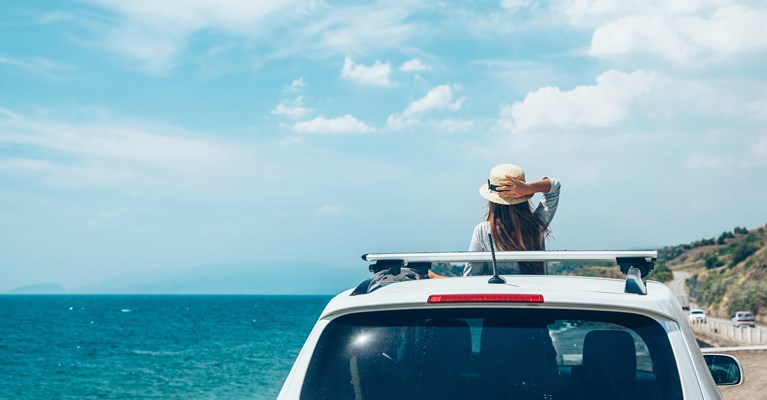Temporary Car Insurance for Driving Abroad
Asda Money doesn't yet offer a comparison service for temporary car insurance when travelling abroad, we're a great place to compare annual car insurance for driving abroad though.

From road trips to city breaks, driving abroad can be a great way to see the sights and get from place to place. However, you’ll need to make sure you’re covered for driving overseas in your chosen destination before heading off into the sunset, so here’s some helpful information on getting car insurance for driving abroad.
Please note: we do not offer temporary car insurance for driving abroad through Asda.
Why choose Asda Car Insurance comparison service?
-
![Asda logo]()
The Asda Advantage
Known for putting value for money at the centre of everything we do
-
![Clipboard icon]()
One simple form...
Over 60 quotes from the UK’s leading providers such as AXA, Hastings and Swinton
-
![Diamond Icon]()
We only work with partners regulated by the Financial Conduct Authority
A car insurance comparison service you can trust
Do I need car insurance when driving abroad?
If you plan on driving your own car around Europe then you’ll need to make sure your existing policy has European car insurance included. You’ll also need to check if the specific country or countries you’re visiting are covered, or if any extra documentation is needed. If driving abroad is not a standard part of your policy, then you’ll need to ask your provider about adding European car insurance before you can head across the Channel.
What do I need to do before driving my car abroad?
Before any trip, you should let your provider know if you’re planning on driving your car abroad, and check the level of cover that your policy gives you.
The standard level of cover providers usually give when travelling to Europe is basic third party, so you should check to see whether your policy has comprehensive cover or whether you can upgrade if you think it’s necessary for your type of holiday or driving trip as this can give you access to extra coverage abroad like access to a courtesy car if yours breaks down.
The other key thing to check with your provider is the length of time you’re covered for driving abroad, as some policies put a limit on how long you’ll be insured overseas. This could be a maximum amount of days you can drive abroad in one go, or a yearly overall limit you can draw from.
If you’re planning on driving further afield than Europe then you will need to check if your destination is covered with your provider.
Do I need a Green Card for driving abroad?
A Green Card is designed to make it easier when driving between European countries by having one document that’s recognised by all countries. It acts as an international certificate of insurance and, depending on the country you’re going to, you may need a Green Card to prove that your insurance gives you the minimum level of coverage abroad.
While most countries won’t ask you for a green card as your motor insurance certificate is enough, some countries do still require one including Belarus, Morocco, Russia and Turkey.
An additional benefit of having one is it can make things easier when claiming, exchanging details in the event of an incident and providing police with your information. It can guarantee that if you are in an accident, you’ll be compensated in the country where the accident took place.
Do I need European breakdown cover?
Separate to your insurance for driving in Europe, breakdown cover in Europe can be equally important due to the costs involved in repairs and repatriating your vehicle, especially on long journeys.
This is another thing that is worth checking with your insurance policy provider to see whether it’s already included in your coverage, and if it isn’t you can check how much it would be to add it to your policy.
What will I need to take with me when driving abroad?
It’s essential that you take all the necessary documents with you when taking your own car abroad, so tick off each item you’ll need with the list below:
- Full driving licence
- Car registration documents (V5)
- Any insurance documentation, incl. Green Card if needed
- Breakdown policy documents
- Travel insurance documents
- European Health Insurance Card
ASDA Money is a trading name of Asda Financial Services Ltd and Asda Stores Ltd which for general insurance are Introducer Appointed Representatives of Vast Visibility Limited, 8 Princes Parade, Liverpool, L3 1DL, authorised and regulated by the Financial Conduct Authority. Firm reference number 566973. You can check these details on the FCA Register.
The ASDA car insurance comparison service is arranged by and administered by Vast Visibility Limited.


